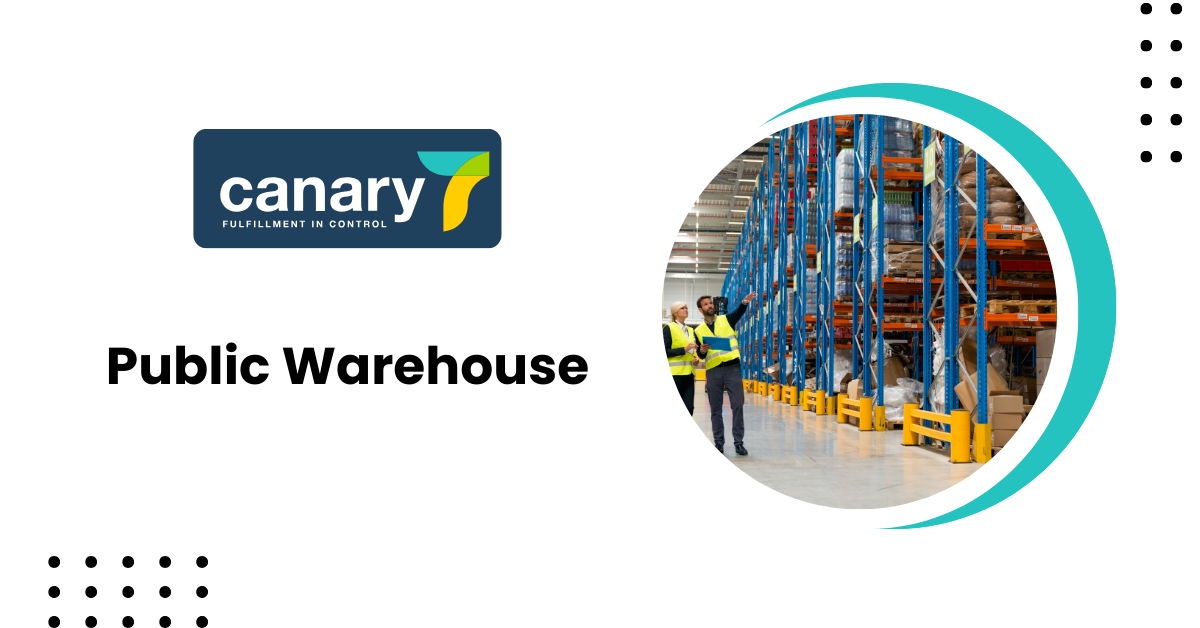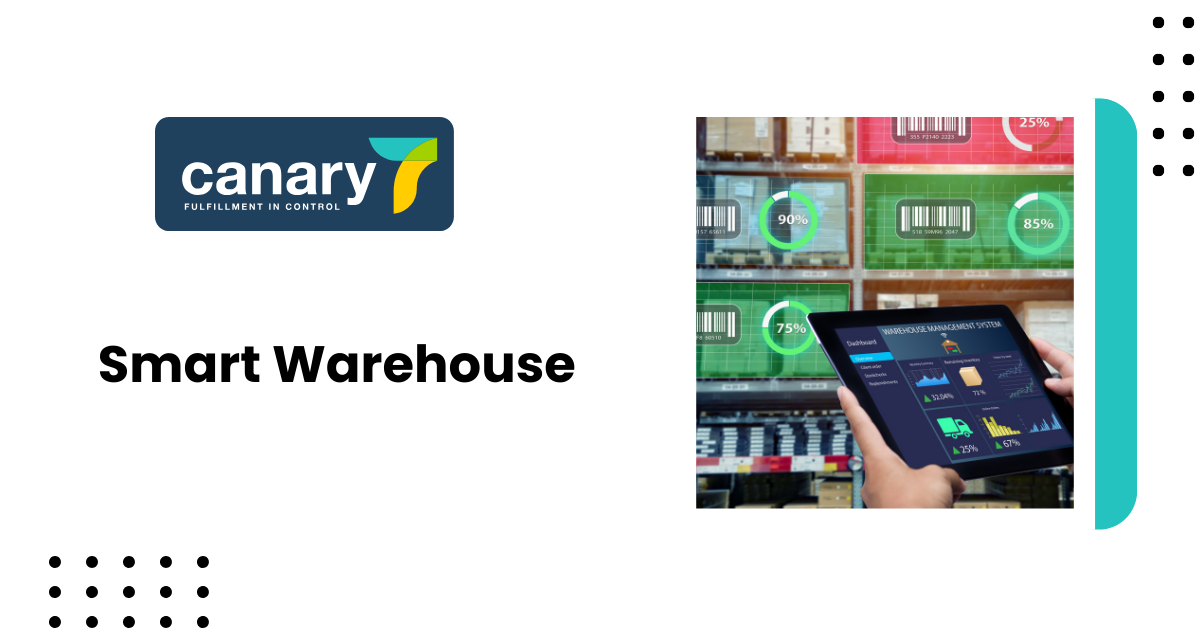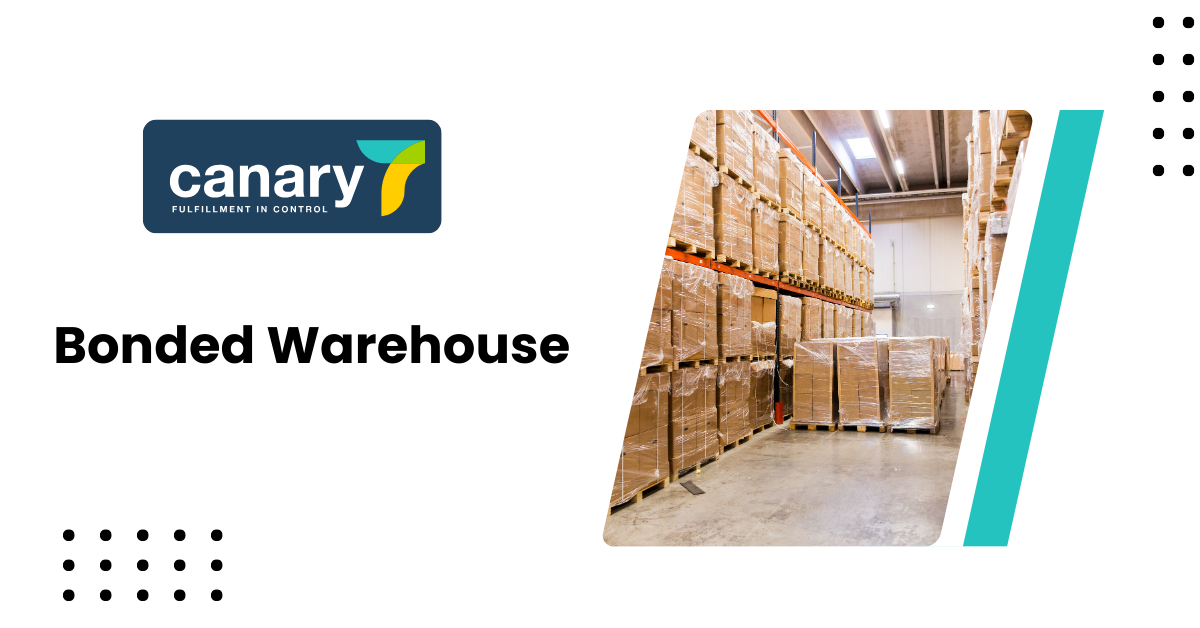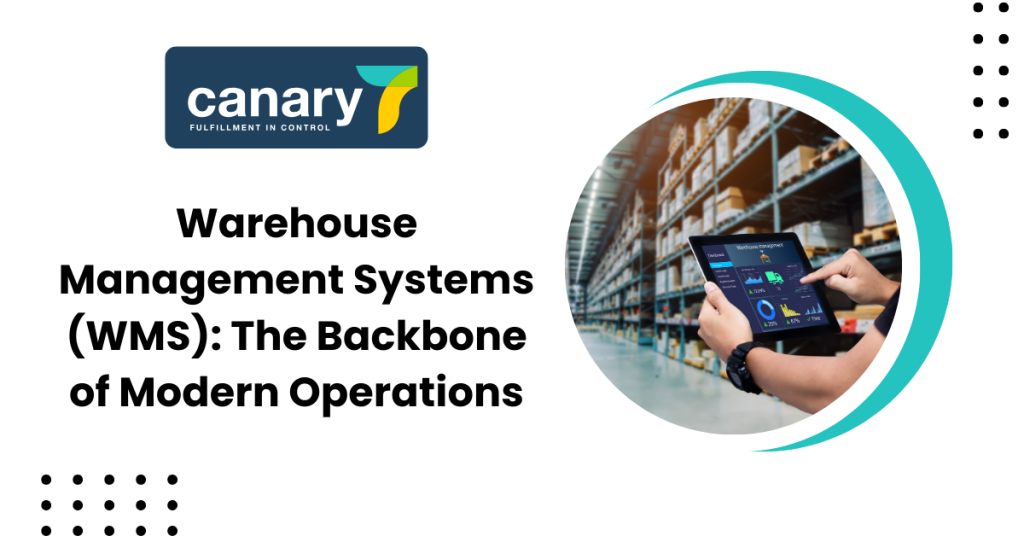Different Types of Warehouses and How to Choose the one for your Business
Did you know that 45% of businesses in 2024 report delays and lost revenue due to inefficient warehouse management operations? Whether you’re an eCommerce retailer, a brick-and-mortar seller, or a manufacturer, where and how you store your stock is a critical factor in your business’s success. Your warehouse isn’t just a place to store goods; it’s the backbone of your entire fulfillment process. The more organized your warehouse is, the more streamlined your operations will be, leading to improved customer satisfaction and business growth.
Warehousing, however, is one of the most complex aspects of running a business. A single misstep can turn an efficient, high-functioning facility into a chaotic and disorganized space. But how do you avoid that? The first step is choosing the right type of warehouse for your business needs. In this guide, we’ll explore the ten most common types of warehouses, share the latest trends, and help you make an informed decision for your business.
What is a Warehouse?
At its core, a warehouse is more than just a storage facility. It’s the hub where your inventory is organized, managed, and processed. From picking and packing to order fulfillment, your warehouse affects how efficiently your business runs. It’s essential to choose a warehouse that aligns with your business model while also accommodating future growth.
For businesses looking to streamline their operations, implementing the Best Warehouse Management Software or the Best Warehouse Management Software in the UK can significantly improve efficiency.
Types of Warehouses: Which One Is Right for You?
1. Public Warehouse
A public warehouse is owned by a government entity and offers affordable, short-term storage solutions to businesses. These facilities are open to anyone on a rental basis, making them ideal for companies with seasonal inventory needs or those that don’t require advanced warehousing options.

2. Private Warehouse
Private warehouses are owned and operated by individual businesses, giving them full control over the facility. These warehouses are ideal for manufacturers, wholesalers, and distributors who require specialized storage solutions.
Who Is It For? Businesses that need complete control over their warehousing operations, such as manufacturers and distributors.
Advantages:
- Complete Control: Manage all aspects of warehousing, including inventory and security.
- Scalability: These warehouses can grow with your business, offering a long-term storage solution.
3. Smart Warehouse
Smart warehouses are equipped with advanced technologies like AI, robotics, and automation systems. According to 2024 reports, the smart warehouse market is growing at a rate of 12.4% annually. With features like automated packing, real-time inventory tracking, and AI-powered systems, these warehouses significantly enhance productivity and reduce human error.

Who Is It For? Smart warehouses are ideal for businesses that need high levels of efficiency and automation, particularly large enterprises with complex fulfillment operations.
Advantages:
- Automation: Reduces human errors by up to 25%.
- Efficiency: Cuts fulfillment time by up to 30%, improving overall productivity.
- Consider integrating a Warehouse Management System in the UK to streamline operations further.
4. Cold Storage Warehouse
Cold storage warehouses are designed to store temperature-sensitive goods. With the global demand for cold storage set to rise by 9% in 2024 due to increased demand from the food and pharmaceutical sectors, these warehouses play a crucial role in maintaining product quality.
Who Is It For? Businesses dealing with perishable items like food, pharmaceuticals, or plants.
Advantages:
- Temperature Control: Keeps products in a controlled environment to prevent spoilage.
- Safety: Essential for industries where product degradation can result in significant financial losses.
- Stock control solutions can also be applied to maintain efficient inventory tracking in such specialized warehouses.
5. Consolidated Warehouse
Consolidated warehouses work by combining shipments from various suppliers into one facility. These are particularly effective for small businesses that don’t have large quantities of goods to ship and prefer sharing shipping costs.
Who Is It For? Small businesses or startups with limited inventory or shipping needs.
Advantages:
- Cost-Effective: Sharing a warehouse reduces shipping costs.
- Efficiency: Streamlines transportation processes for businesses with low shipping volumes.
6. Bonded Warehouse
Bonded warehouses store imported goods before customs duties are paid. These facilities are vital for businesses dealing with imports, offering temporary storage while goods await clearance.

Who Is It For? Ideal for companies dealing with international imports that require secure, short-term storage before customs clearance.
Advantages:
- Secure Storage: Allows goods to be stored securely while awaiting customs clearance.
- Cost-Effective: Delays payment of customs duties until the products are ready for distribution.
7. Government Warehouse
A government warehouse is similar to a public warehouse but owned and operated directly by the government. These warehouses offer more secure storage options, often used for sensitive or important goods.
Who Is It For? Businesses dealing with sensitive materials or government contracts.
Advantages:
- High Security: Ideal for companies that need to store sensitive or critical goods.
- Affordable: Often more affordable than private storage solutions.
8. On-Demand Warehouse
On-demand warehouses are flexible storage options where companies rent space only when they need it. These are popular with businesses facing sudden inventory spikes or seasonal fluctuations.
Who Is It For? Any business is dealing with temporary storage needs, such as seasonal increases in stock or unexpected demand.
Advantages:
- Flexibility: Pay for storage space only when you need it.
- Cost-effective: Ideal for businesses with seasonal needs or fluctuating inventory levels.
- Consider using a cloud-based ecommerce Warehouse System Software to efficiently manage on-demand warehousing and inventory control.
9. Cooperative Warehouse
Cooperative warehouses are shared by multiple businesses, typically in the same industry. This allows for cost-sharing and collaboration between companies with similar storage needs.

Who Is It For? Commonly used by businesses in agriculture or food industries, such as farmers or wineries.
Advantages:
- Cost Sharing: Reduces expenses by splitting storage and operational costs between multiple businesses.
- Collaboration: Encourages businesses to work together efficiently.
10. Distribution Centre
Distribution centers are high-functioning facilities focused on the quick movement of goods, especially for large businesses or eCommerce companies. These centers are designed to expedite fulfillment and distribution, connecting suppliers and customers more efficiently.
Who Is It For? Larger businesses or enterprises with high-volume shipping and complex distribution needs.
Advantages:
- Speed and Efficiency: Designed to move products quickly and efficiently through the supply chain.
- Cost-effective: Provides a central location for large-scale distribution, reducing transportation costs.
How to Choose the Right Warehouse for Your Business
Now that you’re familiar with different types of warehouses, how do you choose the right one for your business? Here are a few key factors to keep in mind:
1. Align with Business Needs
First and foremost, ensure that your warehouse meets your business’s unique needs. Whether you require temperature-controlled storage or the ability to scale your space, the warehouse must support your inventory type and operational demands. Using a UK Warehouse Management System or Best Warehouse Management Software can help ensure you have the right tools for this.
2. Prioritize Security
Always prioritize security when choosing a warehouse. Whether it’s surveillance systems, restricted access, or advanced locking mechanisms, ensuring the safety of your products is crucial.
3. Ensure Flexibility
As your business grows, so will your warehousing needs. Make sure the warehouse can accommodate changes in inventory size, product variety, and seasonal demand.
4. Embrace Technology
Incorporating advanced technologies is essential in 2024. Choose a warehouse that allows for the integration of AI tools, Warehouse Management Systems, and automation processes. Implementing a cloud-based WMS or eCommerce Warehouse Management System can reduce your operational costs by up to 20% and significantly improve efficiency.
5. Consider Long-Term Efficiency
While short-term needs are important, consider how the warehouse will support your business’s growth in the long term. Make sure the facility you choose enhances productivity rather than slowing down your processes.
Warehouse Management Systems (WMS): The Backbone of Modern Operations

A Warehouse Management System (WMS) is an essential tool for streamlining warehousing operations. It helps manage inventory, optimize order fulfillment, and enhance overall productivity. Some of the key trends in WMS for 2024 include:
- Cloud-Based WMS: Offers scalability and reduces infrastructure costs.
- AI and Machine Learning: For demand forecasting and predictive maintenance.
- IoT Integration: Improves real-time data collection and process automation.
- Voice-Directed Picking: Enhances accuracy and efficiency in the warehouse.
Conclusion: Optimizing Your Warehouse Strategy
Choosing the right warehouse is a vital decision for your business. Whether you opt for a smart warehouse, a private facility, or an on-demand space, it’s essential to align your choice with your business’s specific needs. Remember, integrating advanced technologies like AI-powered WMS can further enhance your operations, making your fulfillment processes more efficient and cost-effective.
Ready to take your warehousing strategy to the next level? Consider implementing advanced solutions like Canary7’s Warehouse Management System to streamline your operations. By choosing the right type of warehouse and integrating the best technologies, such as a Cloud-Based WMS or an eCommerce Warehouse Management System, you can significantly enhance your business’s fulfillment process, ensuring scalability, efficiency, and long-term growth.
Final Thought: In 2024 and beyond, warehousing is no longer just about storage; it’s about efficiency, scalability, and technological integration. Whether you’re choosing a Warehouse Management System in the UK or looking for the Best Warehouse Management Software, the right choice will future-proof your business. Make sure your decision aligns with your long-term business objectives and optimizes your warehousing strategy for maximum performance.

Namrata Chawla
Author
UPDATED ON: 7th feb 2024
Namrata Chawla, a professional writer, crafts compelling weblog content on warehouse management, inventory control, logistics, and beyond. With a wealth of experience in this niche, she's dedicated to delivering unique, informative, and top-tier posts. Her commitment to exploration ensures fresh perspectives in each insightful blog post.
Subscribe to get latest posts straight in your inbox.